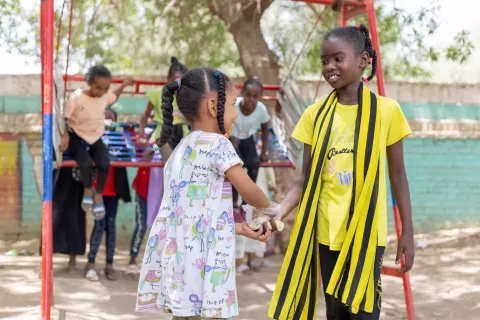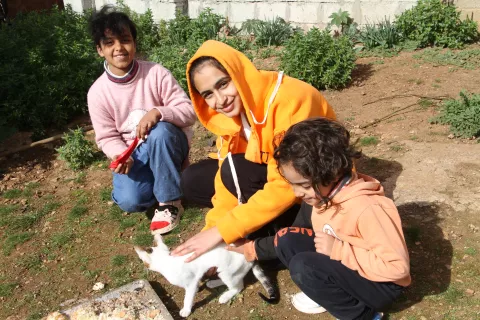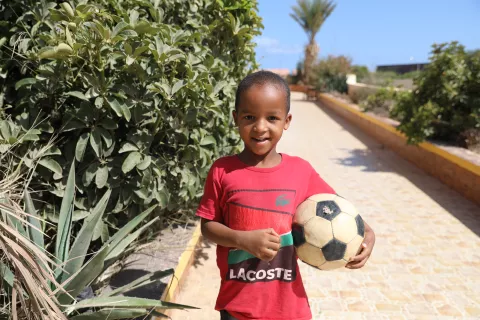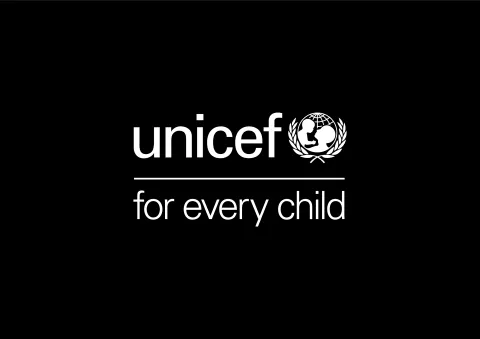“I got married at the age of 13”
As Lebanon slips deeper within its multiple crises, desperate coping mechanisms are being employed within vulnerable families. With mounting debts, some are encouraging young girls to marry

- Available in:
- English
- العربية
As Lebanon slips further into the depths of its multiple crises, vulnerable families are taking desperate measures. With mounting debts, parents are cutting school expenses and, in growing numbers, encouraging young girls to marry. This is the story of a girl who got married, pregnant and divorced at the age of 13. Her story reminds us that child marriage is not a solution and that more support is needed to prevent more girls from getting married and help them fulfil their potential.
“These are difficult days for every family in Lebanon”, says Syrian refugee and mother of five Najah. “We’re all trying to find ways to safeguard our family and make sure there’s enough money to feed every mouth in our home. In trying to do the best for my youngest daughter, I made a terrible mistake”.
Najah, in her 40s and separated from her husband, is head of the household at her home in one of the many informal tented settlements in Lebanon.
Her youngest daughter, Rahaf, is now 15.
“To protect her, I thought it would be better for her to have a husband of her own. Without this, I’ve seen too many girls increasingly exposed to bullying and sexual violence. So, when a young man arrived at our door and asked to marry my daughter, I accepted. It is a decision I will regret for the rest of my life”.

“I got married at the age of 13. The man who came to my home to ask for me was 18; I didn’t know him, and I didn’t want to get married, but my mother insisted that I had no other choice.
“At the time, I was still at school. I used to enjoy going. I had friends; we learned; we played; we talked about our futures. On the day I got married, this stopped.
“Even as a young teenager, I knew this wasn’t right, but my mother told me this man would take care of me and give me a better life. She told me that to be a wife and a mother was my purpose in life”.
Within weeks, the 13-year-old was pregnant. At the same time, Rahaf’s husband turned aggressive and, for the safety of her daughter and the unborn child, Najah took them back home.
At 15, Rahaf is still barely a woman, yet this young girl has experienced trauma to the degree that no woman ever should.
“When my daughter was born, he came to take her from me. I’ve never seen her since”
“I lived with my husband for just three months”, she recalls with a tremor in her voice. “And when my daughter was born, he came to take her from me. I’ve never seen her since”.
Child marriage is increasingly employed as a coping strategy within vulnerable communities of both Lebanese and Syrians. To many, it offers the simple advantage of having one fewer mouth to feed.
However, their experience has left invisible scars on this mother and daughter.
“I made a terrible mistake”, admits Najah. “I decided it was better for Rahaf to have a husband take care of her, but what happened was quite the opposite”.
“I should have taken greater care of her myself, and she should have continued going to school”.
Today, Rahaf sits with her mother in the quiet of their small, tented home. She yearns to see her daughter and equally yearns for her own missed childhood.
“When I look to my future now, all I see is more of the same. I want to be a child again,” she says. “If I hadn’t been forced to marry, I’d still be studying”. Girls like her should get sustained support to unlock their potential.
“I want her to have a chance to start over – to find a place in school, and to learn the life of a young girl again”
Her mother insists that, for now, Rahaf is back where she belongs, looking at opportunities to discover her full potential through a life of possibilities. “I want her to have a chance to start over – to find a place in school, and to learn the life of a young girl again”, she remarks”.
However, the family dependance on cash assistance of around US$40 and with debts mounting ever higher, Najah is clear in her feelings towards the family’s future.
“I don’t have hope for tomorrow. Whatever will happen next is out of my hands. One thing is for sure though”, she adds, “no girl should ever marry before completing their education. No good can come from marrying a daughter off too young”.

UNICEF’s work
UNICEF with partners is currently supporting the family through a targeted outreach programme for vulnerable families. Najah is now engaged in the caregivers’ programme and Focused Psychosocial Support programme within a positive parenting programme. Her daughter has been receiving psychosocial support. Although Rahaf is not engaged in any form of formal or informal education, she is actively involved in activities aiming at empowering girls through strengthening prevention and response services for women and girls at risk and survivors of violence in Lebanon.
UNICEF is supporting Najah’s family also by providing water, sanitation, and hygiene (WASH) services. This includes water trucking and dislodging, rehabilitation of latrines, distribution of water tanks and hygiene promotion activities.
At the national level, UNICEF is working with the Ministry of Social Affairs (MoSA) on the Strategic Plan for the Protection of Women and Children, focused on strengthening MoSA’s leadership and regulatory role in the field of child protection.
UNICEF is also working with MoSA on the finalisation of the National Child Marriage Action plan that aims at creating greater cross-sectoral collaboration between protection, education, health, livelihood and cash support to prevent and respond to child marriage. At the same time, this will reinforce positive social norms that promote marriage within the context of full consent between two adults.
Also together with MoSA, UNICEF supports ‘Qudwa’ - a social behavioural change and communication plan to help prevent child marriage and other negative coping mechanisms such as child labour and violence against children and women.
UNICEF is providing child protection services across Lebanon to girls and boys at risk, as well as access to water, sanitation and hygiene services for an estimated 200,000 people every year. UNICEF also supports access to education and is part of LOUISE, the UN cash assistance programme to refugees.
UNICEF’s Child Protection programme is supported by UK’s Foreign, Commonwealth & Development Office, the EU MADAD Trust Fund, the US government’s Bureau of Population, Refugees, and Migration, the governments of Canada, Switzerland, Norway, and Natcom France.
**The names in this story have been changed to protect the identity of the girl and her family




